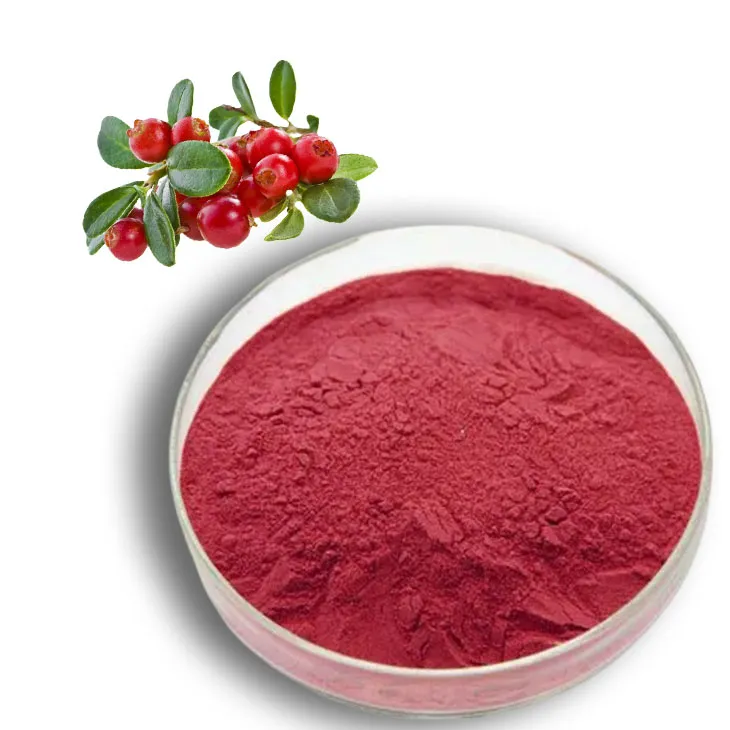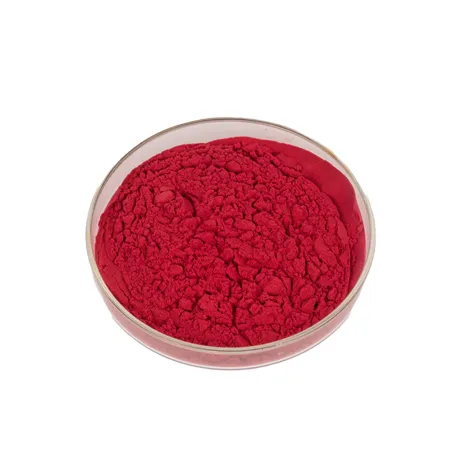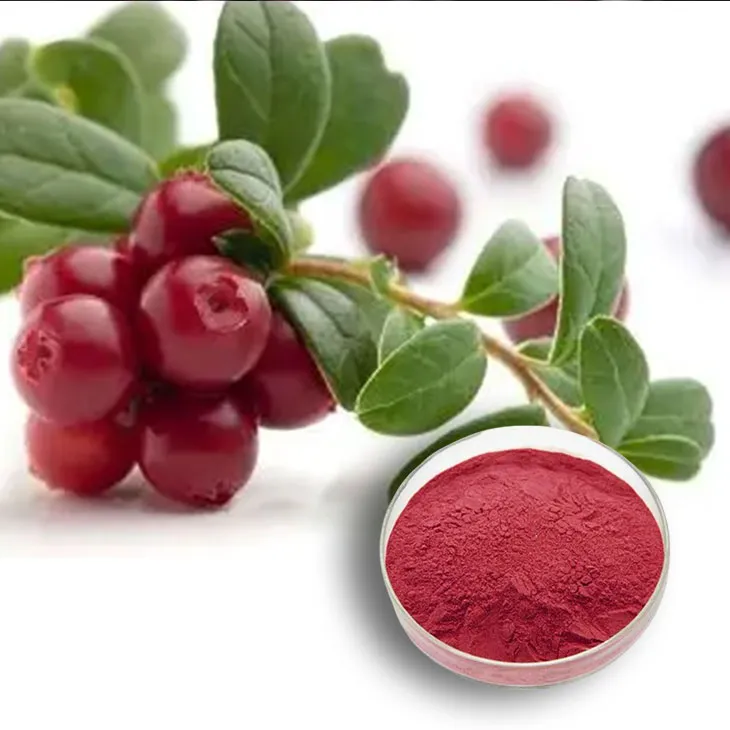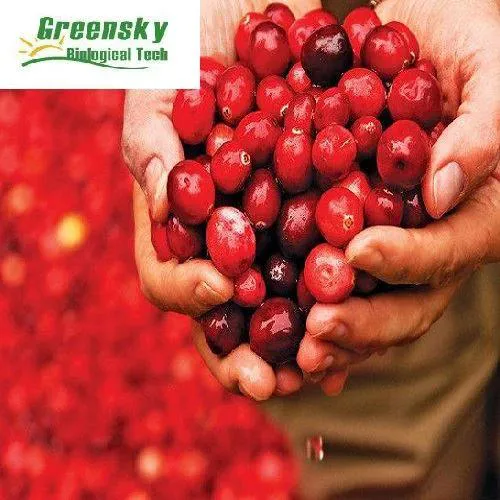- 0086-571-85302990
- sales@greenskybio.com
Does Cranberry Extract Reduce Inflammation? A Comprehensive Review
2025-07-09

Cranberries have long been celebrated in North American tradition, not only as a holiday food but also for their purported health benefits. In recent decades, Cranberry Extract—an increasingly popular supplement—has been praised for its potential to support urinary tract health, boost immunity, and, notably, reduce inflammation. But how strong is the scientific evidence supporting these claims, particularly concerning inflammation? This article takes a detailed look at the role of Cranberry Extract in inflammation, reviewing current research, possible mechanisms, practical applications, and limitations.
Understanding Inflammation and Its Health Impact
Before evaluating whether Cranberry Extract is effective for inflammation, it’s essential to understand what inflammation is. Inflammation is a natural immune system response that helps the body heal from injury and defend itself against infections. However, chronic inflammation—persistent, low-grade inflammation in the absence of acute injury or infection—has been linked to serious health conditions, including heart disease, diabetes, arthritis, and even some cancers.
Addressing chronic inflammation through nutrition, lifestyle, and medication is a major goal in both preventative medicine and disease management. For those looking for natural solutions, plant-based extracts and supplements have become appealing, with cranberry extract among the most widely promoted.

What is Cranberry Extract?
Cranberry extract is derived from the fruit of the cranberry plant (Vaccinium macrocarpon). It is most commonly available in the form of capsules, tablets, powders, or concentrated juices. The extract is rich in bioactive phytochemicals, most notably polyphenols such as flavonoids, phenolic acids, and a specific class called proanthocyanidins (PACs). These compounds are credited for most of cranberry’s health effects.

The Science: Cranberry Extract and Inflammation
Numerous laboratory studies (in vitro and animal research) have explored the anti-inflammatory potential of cranberry phytochemicals. The most studied components, especially PACs, demonstrate the ability to modulate inflammatory pathways at the cellular level, including inhibiting the production of inflammatory enzymes and cytokines (signaling proteins involved in the immune response).
1. Mechanisms of Action
Cranberry’s potential to reduce inflammation is linked to its high levels of polyphenols, especially PACs and Quercetin. These compounds counteract oxidative stress and interfere with key molecular pathways, such as:
- Suppressing NF-κB, a major regulator of inflammation in cells
- Inhibiting the production of pro-inflammatory cytokines like TNF-alpha and interleukin-6 (IL-6)
- Reducing the activity of enzymes such as cyclooxygenase-2 (COX-2), which promotes inflammation
- Acting as antioxidants, which helps prevent excessive inflammatory responses triggered by free radicals
2. Evidence from Animal and Laboratory Studies
In animal models, cranberry extract has consistently demonstrated an ability to reduce inflammation. For example, studies have shown reductions in inflammatory markers and improvements in inflamed tissue in cases of induced colitis (intestinal inflammation), arthritis, and cardiovascular damage. In laboratory studies using human cells, cranberry compounds reduced markers associated with inflammation in vascular, gut, and immune cells.
3. Evidence from Human Studies
While laboratory and animal data are promising, the translation to human health effects is less clear. Human clinical trials on cranberry extract and inflammation are relatively limited and often have small sample sizes. However, a handful of studies provide cautiously optimistic results:
- Some randomized controlled trials have found that supplementing with cranberry extract or juice modestly reduces inflammatory markers like C-reactive protein (CRP), interleukin-6 (IL-6), and TNF-alpha in people with metabolic syndrome, diabetes, or cardiovascular risk.
- In studies of healthy adults, cranberry supplementation has reduced oxidative stress and some inflammation markers after exposure to a high-fat meal or other inflammatory triggers.
- In women with recurrent urinary tract infections (UTIs), cranberry extract has helped reduce rate of infection which, in turn, may lower local inflammation of the genitourinary tract.
Despite these findings, results are not uniform. The effect size is generally small—often statistically significant but not always clinically significant—and benefits may depend on dose, individual health status, and duration of use.

Practical Uses and Limitations
Practical Application
Cranberry extract is most widely used for urinary tract health but may also be considered as part of an anti-inflammatory diet—particularly for individuals at risk of chronic diseases associated with low-grade inflammation. It is usually well tolerated and safe for most adults when taken according to package instructions.
Considerations, Risks, and Limitations
- Quality and Dosage: The potency and bioavailability of PACs and other active compounds can vary widely among cranberry extract products. There is no standard dosage for anti-inflammatory effects.
- Not a Replacement for Medical Treatment: Cranberry extract should not replace prescribed anti-inflammatory medications, especially for people with diagnosed inflammatory or autoimmune disorders.
- Blood Thinners: Cranberry products may interact with warfarin and other blood thinners, increasing risk of bleeding.
- Kidney Stones: Due to the oxalate content in cranberries, those prone to kidney stones should use cranberry extract cautiously.

Conclusion
The current body of research supports some potential for cranberry extract to reduce inflammation, particularly due to its content of polyphenols and proanthocyanidins. Laboratory and animal studies demonstrate clear anti-inflammatory effects, and limited human research suggests modest improvements in inflammatory markers. However, more large-scale, rigorous clinical trials are needed to establish effective dosages and long-term impact. For most people, cranberry extract can be a useful supplement within a balanced diet, particularly for urinary tract support and possibly to help regulate inflammation. Individuals with chronic illness, taking prescription medications, or with a history of kidney stones should consult a healthcare provider before starting supplementation. Ultimately, cranberry extract can be a helpful addition to an anti-inflammatory lifestyle—but should be used as a complement to, not a substitute for, established medical therapies.
- ▶ Hesperidin
- ▶ Citrus Bioflavonoids
- ▶ Plant Extract
- ▶ lycopene
- ▶ Diosmin
- ▶ Grape seed extract
- ▶ Sea buckthorn Juice Powder
- ▶ Fruit Juice Powder
- ▶ Hops Extract
- ▶ Artichoke Extract
- ▶ Mushroom extract
- ▶ Astaxanthin
- ▶ Green Tea Extract
- ▶ Curcumin
- ▶ Horse Chestnut Extract
- ▶ Other Product
- ▶ Boswellia Serrata Extract
- ▶ Resveratrol
- ▶ Marigold Extract
- ▶ Grape Leaf Extract
- ▶ New Product
- ▶ Aminolevulinic acid
- ▶ Cranberry Extract
- ▶ Red Yeast Rice
- ▶ Red Wine Extract
-
Nettle leaf extract
2025-07-09
-
Saw Palmetto Extract
2025-07-09
-
Acerola Extract
2025-07-09
-
Mango flavored powder
2025-07-09
-
Polygonum multiflorum extract
2025-07-09
-
Grape Leaf Extract
2025-07-09
-
White Peony Extract
2025-07-09
-
Sophora Japonica Flower Extract
2025-07-09
-
Purple Sweet Potato Extract
2025-07-09
-
Green coffee bean Extract
2025-07-09





















